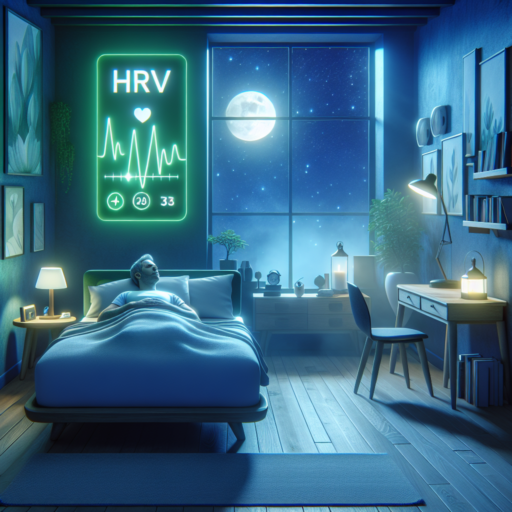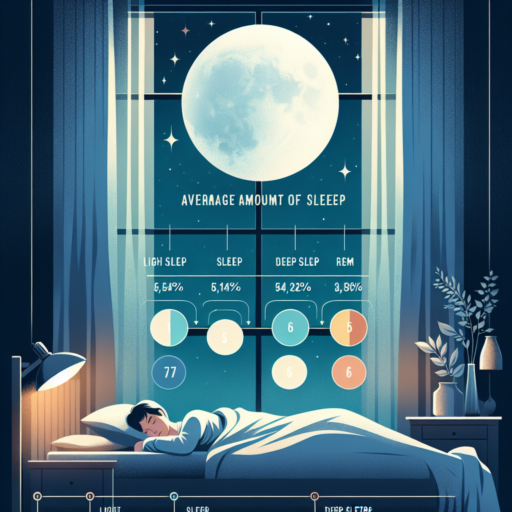Understanding HRV: The Basics of Heart Rate Variability
Heart Rate Variability (HRV) is a critical indicator of the autonomic nervous system’s performance and overall heart health. Unlike the common perception that a consistent heartbeat is a sign of fitness, HRV tells a more complex story. In essence, HRV measures the variation in time between each heartbeat, which can fluctuate greatly due to factors like stress, physical exercise, and even sleep quality.
One fundamental aspect of understanding HRV is acknowledging its link to the body’s stress response. In general, a higher HRV indicates a robust autonomic and cardiovascular system that can efficiently manage stress. Conversely, a lower HRV suggests a potential inability to adapt to stress, which may signal underlying health issues or an overstrained system. Thus, monitoring HRV can provide valuable insights into one’s overall wellbeing and stress levels.
To accurately measure HRV, individuals commonly use wearable technology and apps designed for this purpose. These tools track the variations in your heartbeat over time, offering data that can help gauge your fitness level, stress management, and even predict potential health risks. Importantly, analyzing HRV trends over periods can offer deeper insights into how various lifestyle choices — from diet to exercise routines — affect one’s health.
What is a Good HRV While Sleeping? Unveiling Optimal Levels for Rest
Understanding your Heart Rate Variability (HRV) during sleep is a powerful lens into your overall well-being and sleep quality. HRV, in the simplest terms, measures the variation in time between each heartbeat, serving as a critical indicator of your autonomic nervous system’s flexibility and your body’s ability to adapt to stress. When pondering what is a good HRV while sleeping, it’s crucial to recognize that higher HRV scores typically signify better cardiovascular fitness, resilience to stress, and overall health.
However, pinpointing an optimal HRV level during sleep can be challenging as it varies widely among individuals. Generally, an HRV above 60 milliseconds (ms) for adults is considered healthy, but optimal levels can reach upwards of 100 ms in athletes and those in peak physical condition. During sleep, these levels can fluctuate significantly, influenced by factors such as sleep stages, previous day’s stress levels, and even the bedroom environment.
It is also important to consider your personal HRV baseline and trends over time instead of focusing strictly on a single «good» number. Utilizing wearable technology to track your HRV can provide insight into your body’s recovery state and readiness each morning. By observing long-term patterns and deviations from your norm, you can better understand the impact of lifestyle choices on your sleep and overall health.
The Importance of Monitoring Your HRV During Sleep
Monitoring your HRV, or Heart Rate Variability, during sleep is an essential aspect of understanding your overall health and wellbeing. HRV measures the variation in time between each heartbeat, which is an indicator of your autonomic nervous system’s flexibility. Monitoring these fluctuations gives valuable insights into how your body recovers from stress, exercise, and other daily activities while you’re at rest.
Understanding HRV and Sleep Quality
Sleep is a vital component of your health, deeply interconnected with your HRV. A high HRV during sleep indicates good heart health and a robust stress-response system. It suggests that your body can efficiently switch between states of stress and relaxation, promoting better sleep quality and recovery. Conversely, a low HRV points to poor stress management and potentially compromised health. Monitoring HRV can help identify sleep disturbances and patterns that might not be noticeable but can significantly impact your daily function and overall health.
How Tracking HRV Can Improve Health Outcomes
By keeping a close eye on your HRV during sleep, you can gauge your body’s response to various lifestyle factors, such as diet, exercise, and mental health practices. This real-time feedback allows for personalized lifestyle adjustments aiming to improve your HRV, and thereby, your sleep quality and general health. For instance, noticing a decrease in HRV might prompt you to incorporate more relaxation techniques or adjust your exercise routine to enhance recovery.
Moreover, consistent monitoring of your HRV during sleep provides a long-term picture of your health trajectory. This can be crucial for early detection of potential health issues, allowing for timely intervention. Empowered with this knowledge, individuals can make informed decisions about their health, potentially offsetting future complications and fostering a personal environment conducive to healing and well-being.
How to Measure Your HRV While Sleeping: Tools and Tips
Heart Rate Variability (HRV) is a crucial metric for understanding your body’s recovery and stress levels, especially during sleep when your body does most of its healing and regenerating. Measuring HRV while sleeping requires specific tools and methodologies for accurate data collection. This process offers insights not readily observable during waking hours, making it imperative for athletes, individuals managing stress, or anyone interested in optimizing their health and wellness.
Choosing the Right Tool for Measuring HRV During Sleep
To accurately measure your HRV while sleeping, it’s essential to choose a tool that not only fits your comfort and lifestyle but also provides precise and reliable metrics. Wearable tech, such as smartwatches and fitness trackers, has become increasingly sophisticated, offering detailed HRV analysis. These devices typically work by monitoring your heart rate through sensors that detect your pulse on your wrist or chest. For those who prefer a less intrusive method, under-the-mattress sleep trackers offer an alternative, capturing your HRV data without direct body contact.
Optimizing Your Sleep Environment for Accurate HRV Measurement
Beyond selecting the right tool, optimizing your sleep environment plays a significant role in capturing accurate HRV data. Ensure your sleeping area is conducive to restful sleep by maintaining a cool, dark, and quiet bedroom. Reducing electronic device usage before bed can also enhance the quality of your sleep, thereby providing a stable condition for measuring HRV. Additionally, keeping a consistent sleep schedule further normalizes your HRV readings, making trends easier to identify and analyze.
Understanding the nuances of measuring HRV while sleeping can profoundly impact one’s approach to health and recovery. By leveraging the appropriate tools and adopting conducive sleep practices, individuals can unlock valuable insights into their overall well-being and make informed decisions towards achieving optimal health.
Interpreting Your Sleep HRV Scores: What’s Normal and What’s Not
Understanding your sleep HRV (Heart Rate Variability) scores is crucial in assessing your overall health and wellness. HRV measures the variation in time between each heartbeat, representing your autonomic nervous system’s efficiency. Generally, a higher HRV indicates better cardiovascular fitness, stress resilience, and overall health, whereas a lower HRV may signal stress, fatigue, or underlying health issues.
What Constitutes a Normal HRV Score?
Normal HRV scores can vary significantly from person to person due to factors such as age, gender, fitness level, and genetic predispositions. However, for most adults, an average HRV score ranges between 20-100 milliseconds (ms) during sleep. It’s important to note that consistency in your HRV scores is also a vital indicator of health; sudden deviations from your typical range could warrant further investigation.
Indications of High and Low HRV Scores
A high HRV score during sleep is generally a sign of good heart health and autonomic nervous system balance. It indicates your body’s adaptability and recovery capacity. On the other hand, a low HRV score might not always be cause for alarm but can suggest potential areas for lifestyle improvements. Chronic stress, poor sleep quality, illness, or overtraining can lead to lower HRV.
Understanding the nuances of HRV can empower you to make informed decisions about your health and lifestyle. Monitoring changes over time can provide deeper insights than focusing solely on daily fluctuations.
No se han encontrado productos.
Factors That Influence Your HRV While Sleeping
Understanding the factors that influence your Heart Rate Variability (HRV) while sleeping is crucial for enhancing sleep quality and overall well-being. HRV, a measure of the variation in time between successive heartbeats, is an excellent indicator of your autonomic nervous system’s health and balance. Several key factors can significantly impact your HRV during sleep, highlighting the importance of optimizing your sleep environment and habits.
Lifestyle and Stress Levels
The interplay between your lifestyle choices and stress levels plays a pivotal role in determining your HRV while you sleep. Activities such as regular physical exercise and mindfulness practices can enhance your HRV by promoting relaxation and resilience to stress. Conversely, high stress levels, whether from work, personal life, or emotional distress, can lead to a lower HRV, indicating a strain on your body’s ability to maintain balance and recover during sleep.
Sleep Quality and Environment
The quality of your sleep environment directly influences your HRV and overall sleep health. Factors such as ambient temperature, noise levels, and the presence of artificial light can disrupt your sleep patterns and negatively affect HRV. Ensuring your sleeping environment is conducive to rest—cool, quiet, and dark—can significantly improve your HRV readings and, consequently, your body’s restorative processes during sleep.
Diet and Hydration
What you eat and drink before bedtime can also impact your HRV. Consuming caffeine or alcohol close to bedtime can alter your sleep architecture and reduce HRV, while foods high in sugar can spike your energy levels, making it more challenging to fall asleep. On the other hand, maintaining good hydration levels and choosing light, nutritious meals in the evening can support better HRV outcomes by promoting easier and more restful sleep.
Improving Your HRV for Better Sleep Quality: Practical Strategies
Heart Rate Variability (HRV) is a critical health marker that reflects our autonomic nervous system’s ability to adapt to stress, and it has a profound impact on our sleep quality. A higher HRV indicates a strong, resilient stress-response system, which in turn can lead to better sleep. Fortunately, there are practical strategies to improve your HRV and enjoy the benefits of deep, restorative sleep.
Maintain a Regular Sleep Schedule
One of the most effective ways to enhance your HRV is by maintaining a regular sleep schedule. Going to bed and waking up at the same time every day, including weekends, helps regulate your body’s internal clock. This consistency reinforces your body’s sleep-wake cycle, improving sleep quality and, consequently, HRV. Consistency is key; even slight variations can have noticeable effects on how rested you feel.
Practice Mindfulness and Relaxation Techniques
Stress and anxiety are significant detractors from both HRV and sleep quality. Integrating mindfulness and relaxation techniques such as meditation, deep breathing exercises, or yoga into your daily routine can enhance your body’s relaxation response. This improved state of calm can directly contribute to a more regulated heartbeat and a higher HRV, paving the way for a better night’s sleep.
Engage in Regular, Moderate Exercise
Physical activity is a cornerstone of improving HRV and sleep quality. Regular, moderate exercise boosts your heart rate variability by enhancing your heart’s efficiency and resilience. However, it’s crucial to avoid vigorous workouts close to bedtime as they can stimulate the body, making it harder to fall asleep. Aim for a balance that incorporates physical activity into your day while allowing your body ample time to wind down before sleep.
HRV and Sleep Stages: Understanding the Connection
The relationship between Heart Rate Variability (HRV) and sleep stages is a compelling subject that intertwines the realms of cardiology and sleep science. HRV, a measure of the variation in time between consecutive heartbeats, is closely associated with the autonomic nervous system’s function. This variability is not random; rather, it is a sign of a healthy, responsive cardiovascular system. When it comes to sleep, HRV becomes a mirror, reflecting the quality and nature of our sleep stages.
During the deep sleep stage, research has shown a significant increase in HRV, indicating a state of rest and recovery. This phase of sleep is crucial for physical restoration, memory consolidation, and boosting the immune system. High HRV during deep sleep suggests that the body is effectively managing stress, repairing itself, and consolidating the day’s experiences. Contrarily, a low HRV can hint at sleep disruptions or insufficient deep sleep, potentially leading to feelings of fatigue or unrest upon waking.
The Rapid Eye Movement (REM) sleep stage, known for its association with vivid dreams, presents a different interaction with HRV. REM sleep is characterized by increased brain activity, and interestingly, HRV tends to decrease, reflecting the body’s engagement in consolidating emotional memories and processing information. This decrease in HRV is not indicative of stress but rather an essential part of the cognitive and emotional processing that occurs during REM sleep.
The Impact of Sleep Quality on Your HRV and Overall Health
Sleep is a fundamental aspect of our daily lives that directly influences our Heart Rate Variability (HRV) and, in turn, our overall health. HRV is a measure of the variation in time between successive heartbeats, and it’s a critical indicator of our autonomic nervous system’s resilience and flexibility. High-quality sleep can enhance HRV, signaling a healthy balance between the sympathetic and parasympathetic branches of the autonomic nervous system. Conversely, poor sleep quality can lead to a reduction in HRV, indicating stress, fatigue, or potentially underlying health issues.
Understanding the relationship between sleep and HRV is vital for identifying potential health risks early and taking proactive measures. During deep sleep phases, our bodies enter a state of significant anabolic activity—repairing cells, consolidating memories, and releasing hormones that regulate growth and appetite. These processes are critical for maintaining a high HRV and, consequently, a robust level of overall health and well-being. Lack of quality sleep can disrupt these processes, leading to decreased HRV and increased susceptibility to stress, mood disorders, and chronic diseases.
Several strategies can improve both sleep quality and HRV, creating a positive feedback loop for overall health. Key among these is maintaining a consistent sleep schedule, optimizing the sleep environment for comfort and minimal interruptions, and engaging in regular physical activity. Each of these can contribute to a significant improvement in sleep quality, which in turn boosts HRV and fortifies our health against the challenges of stress and disease.
Case Studies: How Monitoring HRV During Sleep Changed Lives
Monitoring heart rate variability (HRV) during sleep has emerged as a powerful tool in understanding and improving overall health and well-being. Through detailed case studies, we’ve observed remarkable transformations in individuals’ lives, attributing their success to the nuanced insights gained from HRV tracking. This innovation in personal health monitoring offers a window into the body’s autonomic nervous system, providing actionable data that goes beyond simple heart rate monitoring.
In one notable case, an individual experiencing unexplained daytime fatigue and stress discovered through HRV monitoring that their sleep quality was severely compromised. The data revealed significant fluctuations in their HRV scores, pointing towards an imbalance between the sympathetic and parasympathetic nervous systems during sleep. By adjusting their bedtime routine and incorporating relaxation techniques before sleep, they saw a profound improvement in their HRV scores, which correlated with enhanced energy levels and reduced stress.
Another case highlighted the story of an athlete struggling with plateaued performance and delayed recovery times. Through diligent HRV monitoring, it was uncovered that the root of the issue laid in inadequate deep sleep stages, crucial for physical recovery. Tailoring their exercise and diet plan based on HRV insights led to optimized sleep quality, resulting in improved athletic performance and faster recovery. This case underscores the importance of HRV in fine-tuning health and fitness strategies for peak performance.




